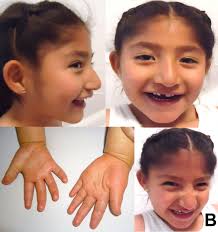AS is a rare genetic disorder. It affects the nervous system and causes developmental delays. It has some clinical similarities to conditions that include autism and cerebral palsy, but the cause is very different. According to the Angelman Syndrome Foundation, AS affects 500,000 people worldwide and occurs in 1 in 15,000 live births. The condition affects males and females equally. There is currently no cure for AS. However, researchers believe there is a high possibility of discovering an effective treatment, according to the Angelman Syndrome Foundation. This is because scientists understand what causes AS, and they can successfully reverse the condition in mice studies. A range of treatments can help manage symptoms. These may include medications, physical therapy, and speech and occupational therapies. People with AS will require support throughout their lives, but they can lead long and happy lives. Several groups and organizations provide a support network for families, fundraising opportunities, and information on the latest research advances.
(Credits: www.medicalnewstoday.com)


